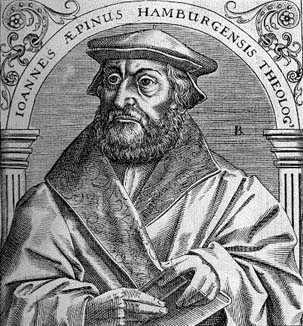<Back to Index>
- Physicist Franz Ulrich Theodor Aepinus, 1724
- Dramatist Carlo Gozzi, 1720
- King of Sweden Erik XIV, 1533
PAGE SPONSOR

Franz Ulrich Theodor Aepinus (December 13, 1724 – August 10, 1802) was a German natural philosopher. Aepinus is best known for his researches, theoretical and experimental, in electricity and magnetism.
He was born at Rostock, Mecklenburg - Schwerin. He was descended from Johannes Aepinus (1499 – 1553), the first to adopt the Greek form (αἰπεινός) of the family name Hugk or Huck, and a leading theologian and controversialist at the time of the Protestant Reformation. After studying medicine for a time, Franz Aepinus devoted himself to the physical and mathematical sciences, in which he soon gained such distinction that he was admitted a member of the Prussian Academy of Sciences. In 1755 he was briefly the director of the Astronomisches Rechen - Institut. In 1757 he settled in St Petersburg as member of the Russian Academy of Sciences and professor of physics, and remained there till his retirement in 1798. The rest of his life was spent at Dorpat.
He enjoyed the favor of Empress Catherine II of Russia, who appointed him tutor to her son Paul, and endeavoured, without success, to establish normal schools throughout the empire under his direction. In 1761, Aepinus was elected a foreign member of the Royal Swedish Academy of Sciences.
His principal work, Tentamen Theoriae Electricitatis et Magnetismi, published at St Petersburg in 1759, was the first systematic attempt to apply mathematical reasoning to these subjects to electromagnetic theory. He also published a treatise, in 1761, De distributions caloris per tetturem, and he was the author of memoirs on different subjects in astronomy, mechanics, optics and pure mathematics, contained in the journals of the learned societies of St Petersburg and Berlin. His discussion of the effects of parallax in the transit of a planet over the sun's disc excited great interest, having appeared (in 1764) between the dates of the two transits of Venus that took place in the 18th century.